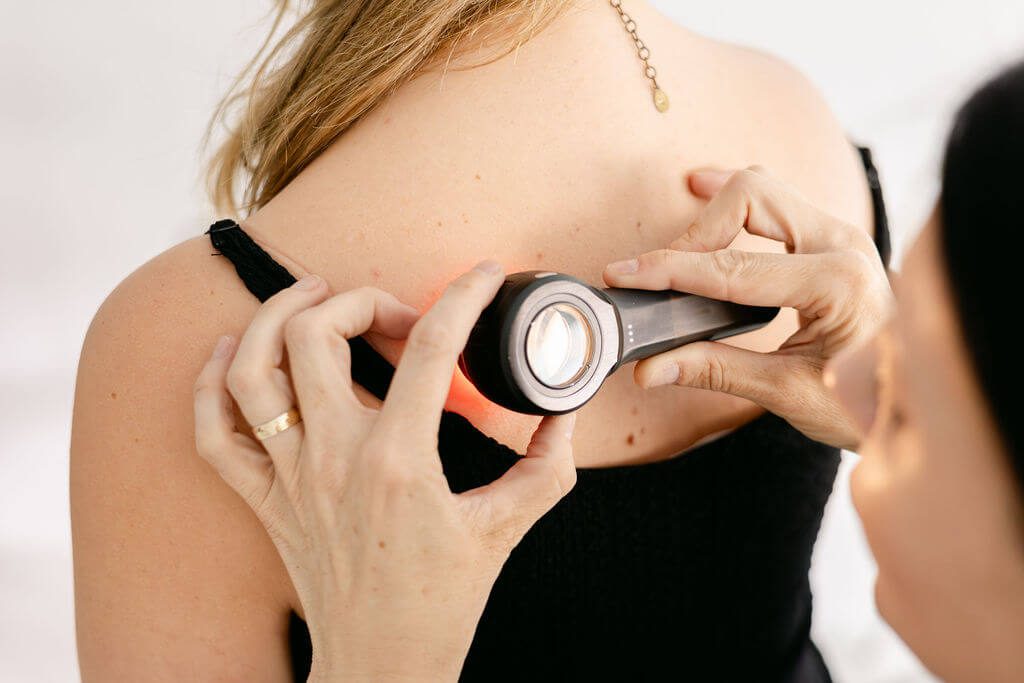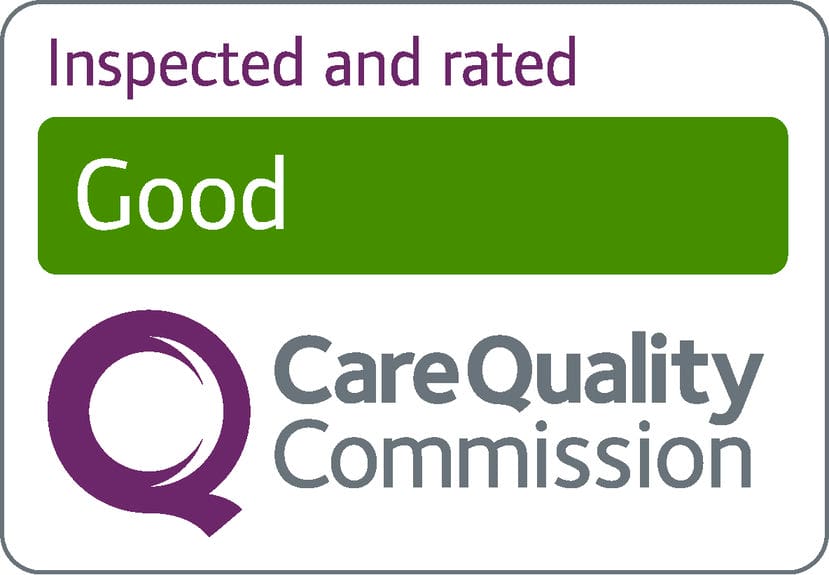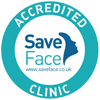Started using Hyaluronic Acid (HA) and noticed more breakouts than usual. Perhaps you have acne and you’re finding that it’s become worse since starting to use.
Well, the thing is… Hyaluronic acid isn’t known to cause acne. It’s an ingredient that has been around for years and years. We recommend it to many of our clients some of whom are actively trying to manage and improve their acne.
Hyaluronic acid helps the overall health of your skin, including helping to keep your skin hydrated and plump. It also helps to improve your skin barrier which is quite often compromised when we have acne; particularly if we’ve used harsh, stripping products in an attempt to control the breakouts. Your skin barrier helps to protect you from external threats such as pollution, harsh winds, and so on. Additionally hyaluronic acid helps to control oil production, a common factor in acne. Hyaluronic acid has been shown to significantly decrease sebum production in those with oily skin. The overproduction of oil, or sebum, can contribute to blocking your pores and therefore helping spots and blackheads to form.
Not particularly helpful for you, I realise, seeing as you’ve noticed a link between using HA and your acne. In fact, why am I even here writing this if that’s all there is to say-sorry, no known link…?
So, Hyaluronic Acid Helps My Acne? Then Why Do I Have A Breakout?
If HA can be so helpful for acne, then why are there anecdotal reports that some people experience acne breakouts after using products containing it? The most likely answer is going to be found in the other ingredients within your product containing hyaluronic acid. If you have acne, you don’t want to use thick, heavy creams or oily serums that have a comedogenic impact on the skin (blocking the pores). You can buy creams and serums that are non-co-comedogenic, which is an excellent starting point.
Additionally, an ultra-thick product that doesn’t absorb quickly may be creating a perfectly moist (ugh hate that word) environment for acne-contributing bacteria to thrive. If you’re not acne-prone, this may not be a problem but if you are it’s a consideration.
One of our very favourite hyaluronic acid serums for many of our clients, not just those with acne, is one by the UK brand Medik8. It is called Medik8 Hydr8 B5. We love it because you get all the amazing hydrating, restorative benefits that hyaluronic acid offers in an oil-free, fragrance-free lightweight serum that does not irritate the skin. It absorbs quickly and does not block the pores. We’re not on commission, we have just loved this product and experienced no acne-inducing problems with it.
If you have acne, or are acne-prone, but would like to experience the benefits that hyaluronic acid has to offer (honestly, it should be a base-line product for so many of us) then TEST PATCH to the side of your face (often easier to hide/less obvious than in the centre of your face should a breakout occur) before using your HA product all over your face.
I am sharing my years of knowledge and experience in using this product with clients and myself (acne-prone) and one thing I do know is that there is always going to be an exception to the rule…that’s Human Body 101. Hyaluronic Acid is not currently a known cause of acne (it has been available for years, as mentioned previously) but there are other factors to consider when using a product containing HA, such as the other ingredients it contains.
Another point to mention here is also the potential for skin purging when you try a new product. Skin purging occurs when a skin treatment or skin product stimulates your skin cell turnover (a good thing), but this can cause an initial breakout. Of course, if you already have acne who can truly say if it’s a normal flare of the condition or if it’s purging? A breakout because of a purge can last a few weeks, similar to a ‘normal’ breakout out. One thing to look out for is a breakout in an area that you don’t usually experience to better understand if it’s a product or just your acne. For example, my ‘usual’ breakouts tend to be confined to my chin and occasionally the sides of my cheeks… it would be unusual for me to get a typical breakout on my forehead or nose. Be aware that a ‘purge’ can happen with almost any product that has active ingredients in it, such as hyaluronic acid. We would expect a breakout from a purge to settle.
If you have persistent acne and would like professional help managing and reducing the frequency and severity of your breakouts and symptoms, we would be happy to discuss your skin and possible products and clinically proven acne facials and acne treatments for your specific needs. Contact us here to arrange your skincare consultation.






